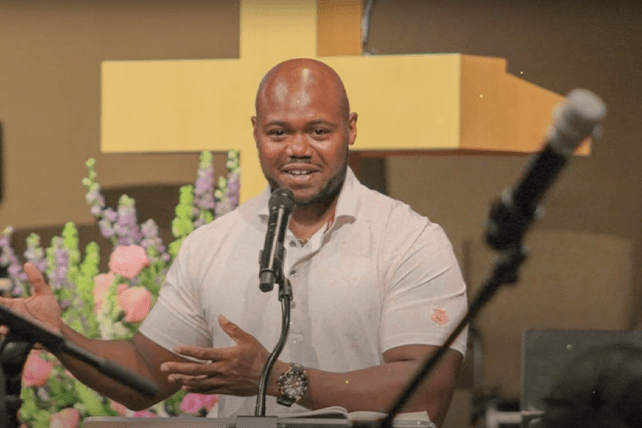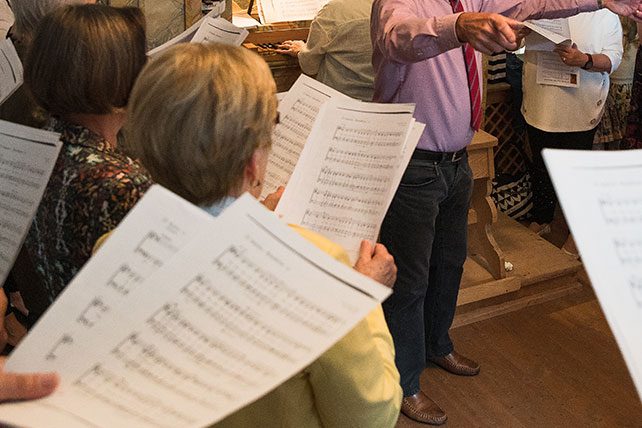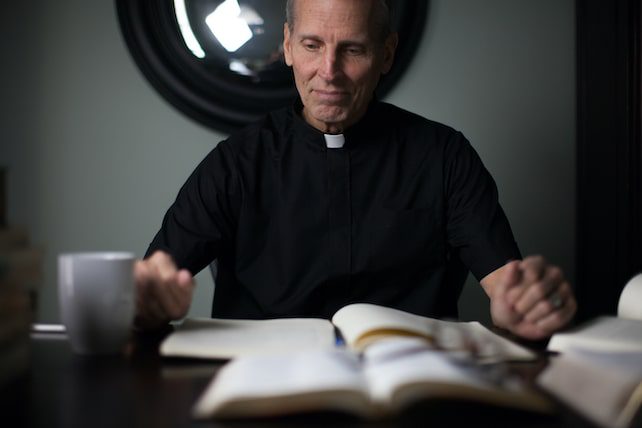Choral music itself will never be a thing of the past, but impoverished are the congregations who are forcing their people to experience singing in secular settings. How important are church choirs? How vital are they to a healthy ministry? Why have them at all? Many people are asking questions like these. Tragically, some congregations have decided that the whole business of nurturing and supporting a choir is just not who they are, or who they are anymore. But as we enter a new year, I want to make a case for a church choir, composed of volunteers and the people who give so freely of their time and effort to support it. I believe the church choir is a unique and vital part of a healthy congregation. Why? Four reasons—but first, a disclaimer.
I’m a choir geek. I have always loved church choirs. When I was a kid, I would go with my parents (both choir directors) to rehearsals on Wednesday night (mom’s choir) and Thursday night (dad’s choir). Then on Sunday I’d worship at the church with the anthem I liked better(!). My parents helped create an annual county-wide choral festival, hosted by the only church in the county that could hold so many people (350–400 singers and 1,500+ in the congregation). I remember, at age 5, leaning over the balcony railing pointing out to my grandmothers each church as the first choir representative processed in. (I knew all of them by their robes.)
The Case for a Church Choir
But this is not just nostalgia. I have spent my adult life directing, accompanying, or singing in a church choir. I’ve experienced the bad as well as the good. There was the congregation in the old urban neighborhood whose choir was a wonderfully supportive fellowship, but they sounded so bad that the pastor and I made a deal—if there were visitors, we skipped the anthem(!). Then there are the success stories like the little church in a farming community where my father nurtured a choir that successfully (and beautifully) sang the Brahms Requiem. It impacted the singers so much that for decades some of them would drop him a note whenever they had attended the performance of a major choral work—sometimes driving three hours one way to be there.
I’ve seen beautiful ministry in a church choir, like the night, in a city church when rehearsal was interrupted by a phone call. The husband of one of the singers had been killed in a drive-by shooting. The choir immediately went to the young widow’s house, keeping a vigil, two by two, around the clock for the next 48 hours. And there were the groups of choir people in our current church who organized visits to the home of a dying choir member just to sing hymns.
I’ve seen choirs nurture disciples, like the time an eighth-grade singer with a difficult home life asked if we could sing the Tchesnokov “Salvation Is Created.” She had heard it, and the message it conveyed had moved her to tears. We did. Or the other week when we ended our Christmas concert with the hauntingly simple “Wonderful Peace” by Gustav Nordqvist, encircling the congregation with beautiful acapella singing. Even a couple of hard-edged city lawyers in the congregation responded with tears in their eyes—they said they had experienced a foretaste of heaven.
Worship teams are fine. They have an important place in 21st-century worship leadership. Professional choral ensembles are OK for what they are—if you must. But there is nothing else like a volunteer choir.
The Case for a Church Choir – Four Reasons:
MOTIVATION
A rare and special dynamic is created among people who don’t have to be there. Church choir members show up, week in and week out, out of love (see below). The only compensation they receive is the joy of being a part of this unique ministry and the joy of making music together. That is enough to keep them coming back.
INSPIRATION
The members of a volunteer choir seek (and find) their inspiration in the music they sing and the opportunity they have to be part of something far greater than the sum of its parts. You can’t experience the thrill of an ensemble singing by yourself—the beautiful forte blend, or the subtlety of a well-rehearsed pianissimo. In a church choir, ordinary people can experience the thrill of a text coming to life as they sing a well-rehearsed anthem, hymn, or psalm.
FELLOWSHIP
A volunteer choir creates a community unlike any other. As a choir meets together, week in and week out, they “do life” together. They pray for one another—celebrating births, mourning deaths, welcoming new members, and grieving the departure of good friends. A healthy choir can be one of the strongest small groups in a congregation.
LOVE
Love is what makes a volunteer church choir: love of music, love for each other, and especially love of the Savior. Love brings a young entrepreneur rushing in for rehearsal after a week of conferences in a foreign country. Love inspires a businessman to drive several hours through holiday traffic to make the dress rehearsal for a Christmas concert. Love causes a young couple to rearrange their lives so that choir rehearsal becomes “date night” on a weekly basis. (None of these examples are imagined).
Nothing will ever replace the volunteer church choir. Nothing ever can. Choral music itself will never be a thing of the past, but impoverished are the congregations who are forcing their people to experience singing in secular settings. If your congregation has a choir, nurture it. Thank the members and support the director. If you don’t have a choir, consider (re)starting one—possibly for Holy Week or Easter. If you’re part of a church choir, keep singing. Keep coming. If you are blessed to be the director of a church choir, don’t take them or that opportunity for granted: make the case for a church choir! Cherish the joy of being part of this rare and wonderful ministry!
This article on the case for a church choir originally appeared here, and is used by permission.













 One of the most common reasons leaders cite as a source of their
One of the most common reasons leaders cite as a source of their 











